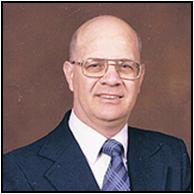 |
|
Home | Archive | Guest Book | Links | churches of
Christ | Contact Us | Salvation | Blog
|
|
| Vol. 15 No. 9 September 2013 | Page 13 |
 |
|
Home | Archive | Guest Book | Links | churches of
Christ | Contact Us | Salvation | Blog
|
|
| Vol. 15 No. 9 September 2013 | Page 13 |
Donald R. Fox
 What a challenge! There is no doubt that our Creator, Almighty God, has challenged us – poor, frail mortals – to consider, examine closely and observe well the evidence of His Being. Notice below an explanation of our English word “consider” as extracted from the Vines Expository Dictionary of New Testament Words: “Consider” is defined in part, to be aware, conscious, as the result of mental perception. Webster’s Dictionary carries the same thought, to look at carefully, regard attentively, examine.
What a challenge! There is no doubt that our Creator, Almighty God, has challenged us – poor, frail mortals – to consider, examine closely and observe well the evidence of His Being. Notice below an explanation of our English word “consider” as extracted from the Vines Expository Dictionary of New Testament Words: “Consider” is defined in part, to be aware, conscious, as the result of mental perception. Webster’s Dictionary carries the same thought, to look at carefully, regard attentively, examine.
“Hearken unto this, O Job: stand still, and consider the wondrous works of God” (Job 37:14). “What we hear is not likely to profit us unless we consider it, and we are not likely to consider things fully unless we stand still and compose ourselves to the consideration of them. The works of God, being wondrous, both deserve and need our consideration, and the due consideration of them will help to reconcile us to all his providences” (“Job 37:14,” Matthew Henry Complete Commentary of the Whole Bible).
Many profound statements, arguments and evidences are brought forth in Job the 38th Chapter. We are forced to consider and examine the evidences contained in the Word of God. “…I will demand of thee, and answer thou me. Where wast thou when I laid the foundations of the earth?” (Job 38:3-4). “The works of the Lord are great, sought out of all them that have pleasure therein” (Psalm 111:2). The idea of sought out is that which is wanted, required. Thus, we seek the greatness of our God and His Word.
Let us consider a few questions, as we humans scratch our heads and wonder! We ponder, “How did all life start?” “Why are we so different and more blessed than the beasts of the field?” “Why do we humans dwell on and even consider such spiritual matters?” “Why consider and examine closely the right or wrong of our behaviors?” “Why does our conscience intuitively prick us when we do wrong while others choose an evil hardness with no scruples?” “Why do we humans have the power to choose right or wrong?” “From where did such ethical/moral standards come?” All these questions and more direct us to the One and True God.
Men also consider the spiritual and the material aspects of this life. Most of us side with the spiritual because of the eternal nature of the evidences and its rewards, “Consider the ravens: for they neither sow nor reap; which neither have storehouse nor barn; and God feedeth them: how much more are ye better than the fowls?” (Luke 12:24).
“I will praise thee; for I am fearfully and wonderfully made: marvelous are thy works; and that my soul knoweth right well” (Psalm 139:14). “Now faith is the substance of things hoped for, the evidence of things not seen” (Hebrews 11:1). As believers, we are forced to accept the evidence and consider “the wondrous works of God.” I am thankful to my Creator because “I am fearfully and wonderfully made…” Amen!![]()
Dean Kelly
 Memory is such an interesting thing. I can recall events that happened 35 years ago or more, and cannot remember what I said five minutes ago. Don’t ask me what I was doing yesterday, but ask me what I was doing on particular days over the last 36 years, and there are some I can recall with extreme clarity. I walk from the bedroom to the kitchen, and in that 10 seconds will forget why I came. I will be in the shower and realize my hair is wet – and can’t remember if I have used shampoo yet. I know – it is old age creeping up on me!
Memory is such an interesting thing. I can recall events that happened 35 years ago or more, and cannot remember what I said five minutes ago. Don’t ask me what I was doing yesterday, but ask me what I was doing on particular days over the last 36 years, and there are some I can recall with extreme clarity. I walk from the bedroom to the kitchen, and in that 10 seconds will forget why I came. I will be in the shower and realize my hair is wet – and can’t remember if I have used shampoo yet. I know – it is old age creeping up on me!
What we remember is significant. It can be significant if we forget things that are important to remember. It can also be significant if we remember things we should forget. Sometimes we forget what is really important. We get so caught up in the motions and actions of our lives that the truly important things slip our memories. On the other hand, sometimes we dwell on and remember things that need to be forgotten. One phrase used by Paul concerning the nature of love in 1 Corinthians 13:5 is well translated (believe it or not) in the NIV: “it keeps no record of wrongs.” Love does not keep a ledger book of transgressions against it by the one loved.
Our memories are, indeed, very faulty. I think some looks at “remembering” from a biblical perspective might be fruitful.
We Need God to Remember – and Forget
The great king and prophet, and man after God’s own heart, penned these words: “Do not remember the sins of my youth, nor my transgressions; According to Your mercy remember me, For Your goodness’ sake, O LORD” (Psalm 25:7). We are dependent upon God’s perfect memory. Our memories, even those of young folks, are at best faulty and sometimes just plain bad. David’s requests to God were that God both forget and remember. He wanted God to remember him, in the sense of asking for God’s providential care for Him. We need to recognize our need for and dependence upon God. We must know that we cannot make it without Him. David also asked God to forget the sins of his youth. David committed the “worst” of the catalog of sins in his encounter with and subsequent actions concerning his relationship with Bathsheba. David had absolutely no hope if God kept that sin in his memory; all he could face would be destruction and punishment. David was dependent upon God’s perfect memory, which includes the perfect ability to forget. Of course, we are all also dependent upon that.
When We Submit Ourselves to God’s New Covenant – He Will Forget
“None of them shall teach his neighbor, and none his brother, saying, ‘Know the LORD,’ for all shall know Me, from the least of them to the greatest of them. For I will be merciful to their unrighteousness, and their sins and their lawless deeds I will remember no more” (Hebrews 8:11-12). When you read the context of Hebrews 8, you see that the inspired writer was explaining the need for a new covenant, a new agreement and a new law to which we must adhere, taking away the old one and replacing it with a better one. When we allow that to be written in our hearts, we will put away unrighteousness and give ourselves in service to God (i.e., we will submit to the new law). When we do that, then, God says He will be merciful and forget our sins and evil deeds. That promise of forgetting is dependent upon our reception of His new covenant and subsequent submission to it. We cannot do a single thing on our own or of our own volition by which we can bring God to forget our sins. Only when we submit to Him and allow the blood of Jesus to wash away our sins, through our obedience to the Gospel in response to His saving grace He has extended to us (Titus 2:11), will God’s perfect ability to forget be applied to us.
We Must Always Remember the Name of the Lord Our God
From the pen of a mighty warrior come these words: “Some trust in chariots, and some in horses; But we will remember the name of the LORD our God” (Psalm 20:7). Sometimes, we think we can handle life ourselves. Sometimes, we put our trust in frail humans, whose memories and strength are weak like ours. Sometimes, we put our trust in the things that surround us. In the good times, we forget about God because things are going well. In the bad times, we try to tackle things on our own. We tend to forget about God. David had fought many battles. The song that touched of the jealousy in Saul’s heart said, basically, “Saul has killed his hundreds, but David has killed his thousands.” David had felled the giant Goliath with a stone and with great skill. Yet, David understood that the greatest weapons, swiftest horses, strongest chariots would all fail. The only hope for all of us is when we remember the name of the Lord our God! We all have memory problems. They get worse as we get older. Let us never forget, in our worst moments of memory, to remember the name of the Lord. May He forget your sinfulness and remember you in His great providence.
I was going to say something else, but I forgot what it was! Oh well, just some thoughts for your consideration.![]()